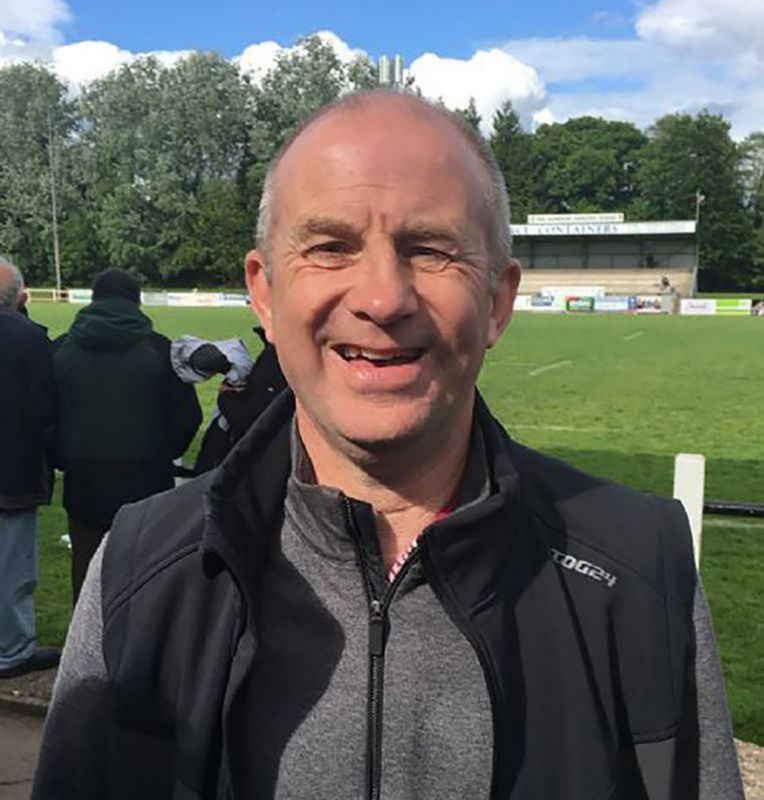- Home
- News, Articles & Reviews
- All Sport
- Cricket
- Cycling
- Football
- Golf
- Horse Racing
- Rugby Union
- Angling
- Archery
- Athletics
- Basketball
- Bowls
- Boxing
- Croquet
- Dance
- Darts
- Diving
- Duathlon
- Equestrian
- General
- Gymnastics
- Hockey
- Martial Arts
- Modern Pentathlon
- Motorsport
- Mountain Biking
- Netball
- Padel
- Parasport
- Polo
- Powerboating
- Powerlifting
- Rowing
- Rugby League
- Running
- Scuba Diving
- Shooting
- Skiing
- Skittles
- Snooker
- Squash
- Swimming
- Table Tennis
- Tennis
- Triathlon
- Tug of War
- Walking
- Walking Football
- Water Polo
- Weightlifting
- Wheelchair Tennis
-
Sport
- All Sport
- Cricket
- Cycling
- Football
- Golf
- Horse Racing
- Rugby Union
- Angling
- Archery
- Athletics
- Basketball
- Bowls
- Boxing
- Croquet
- Dance
- Darts
- Diving
- Duathlon
- Equestrian
- General
- Gymnastics
- Hockey
- Martial Arts
- Modern Pentathlon
- Motorsport
- Mountain Biking
- Netball
- Padel
- Parasport
- Polo
- Powerboating
- Powerlifting
- Rowing
- Rugby League
- Running
- Scuba Diving
- Shooting
- Skiing
- Skittles
- Snooker
- Squash
- Swimming
- Table Tennis
- Tennis
- Triathlon
- Tug of War
- Walking
- Walking Football
- Water Polo
- Weightlifting
- Wheelchair Tennis
We are hiring! Please click here to join our growing magazine delivery team in Gloucestershire!
Areas
Sport
Archive

Paul Morris has been involved at the sharp end of rugby in Gloucestershire for 40-odd years
Author: Roger Jackson, Posted: Friday, 25th May 2018, 09:00
Paul Morris can be feisty, very feisty.
You need a certain edge of course if you are to survive in club rugby in Gloucestershire for as long as he has – some 40 years – firstly as a player with Old Patesians, then as a coach with the Pats, Cheltenham North, Coney Hill and Cinderford United and now as director of rugby at Cinderford.
But while a good number of rugby people over the years can testify that Morris isn’t backwards in coming forwards on occasion, either on or off the pitch, there is definitely another side to the 56-year-old that doesn’t always get seen.
Morris is one of those old-fashioned, straightforward people. What you see is what you get and if he likes and respects you, he likes and respects you.
So while he talks warmly about his parents and the influence they have had on him, he is also very generous when talking about former team-mates, former clubs and past opponents.
Morris has a passion for rugby and that passion was motivated by a desire to impress his dad Derek, who was then headmaster at Sandford School in Seven Springs, and who he describes as his “inspiration”.
“I was the middle one of three children,” he said. “My brother Nick was the oldest and I also have a sister, Helen, so I wasn’t the oldest boy and I wasn’t the only daughter!
“I somehow needed to get my dad’s attention. I wanted to impress him and the way I did it was through rugby.”
Morris was born in London, moving west to this part of the world with his family when he was six but it wasn’t until he went to Cheltenham Grammar School in 1973 that he started playing rugby properly.
Before that he’d played mini rugby at Cheltenham at the old Athletic Ground before joining Old Pats when a junior section was set up by Ray Kingscott and Dick Lewis.
But even when he went to the grammar school, Morris and the sport that has become such a big part of his life were not natural bedfellows.
“I struggled a bit a school, both academically and at rugby,” admitted Morris.
“Rugby was the dominant sport at the school – football wasn’t on the agenda. Rugby was a game that I definitely wanted to play but I didn’t find it easy and I played all over the place.”
The arrival of Peter Kingston at the school – he had just toured Australia with England – was a big factor in Morris’ rugby development.
“I was 14 or 15 and he saw me as a scrum-half,” said Morris.
But while he had nailed down a position Morris wasn’t able to nail down a regular place in the school’s 1st XV.
“I played a few games for the 1sts but I migrated towards the Pats,” he admitted. “My dad was 4th team captain and I started playing for him. I was 15 and I was playing adult rugby, my father always got me in his side!”
He was still playing for the school as well but added: “There was always someone better than me and looking back that was where I get my drive and competitiveness from.”
But while Morris was still very much learning the ropes as a rugby player, one thing he did have in his locker, even in those early years, was his place-kicking.
“I was always a good goal-kicker,” he said.
“I wasn’t the bravest player in those early days but if being brave is something you need to learn Gloucestershire is the place to learn it!”
Fortunately, Morris was quick on the uptake and the more he played for Pats, the more his passion for the club developed.
“My parents divorced in 1980,” he said, “and the Pats were very important to me. They were a bit like a family.”
And even though he went to polytechnic in London for two years after finishing school he would come home as often as possible so that he could pull on the Pats shirt on a Saturday afternoon.
My 1981 Morris’ rugby had developed to such an extent that he was ready for his first-team debut.
“It was against Lydney United at Lydney,” recalls Morris. “I can remember thinking I’m playing with all my heroes, players who had been in the first XV for a long time – Rene Mulholland, Mike Hansen, Dave Harper, Paul Huyton and my particular favourite John Shaw.”
Morris would have to wait a while longer before he could consider himself a regular 1st XV player however.
“I didn’t establish myself until the start of the 1982/83 season,” he said, “but I also got dropped quite quickly as well!”
That was a temporary setback, though, because he soon returned to the side and that season he helped the club win the Cheltenham Combination Senior Cup.
“The final was against Cheltenham North and was supposed to have been played at the Prince of Wales Stadium but it was rained off,” explained Morris.
“Instead it was played at the North and we won 9-0 and I kicked all the points.”
That was Morris’ first ever game against Stuart Gourlay, the powerhouse North scrum-half who was his side’s talisman in the mid to late 80s when the North were winning the Senior Cup for fun.
“He was one of the reasons I enjoyed my rugby so much,” said Morris. “Stuart was a better player than me but I didn’t fear him.
“He was hugely responsible for making me a better rugby player because if I hadn’t have improved he’d have trounced all over me.
“He was a force of nature and was hugely responsible for toughening me up. And it wasn’t just Stuart and the North, it was the Saracens and even Cheltenham Civil Service and Stow.
“Those cup games were ferocious and if you weren’t up for it you didn’t survive. I loved playing in those games, it was a good time to be playing rugby.”
After that cup win in 1983, the Pats would have to wait another decade before winning it again but once they’d got a taste for it they went on to dominate the competition just like the North had in the 80s and early 90s.
“I think I probably ended up with almost as many winners’ medals as Stuart at the finish as he had to stop playing because of injuries,” said Morris.
By now the Pats had also got a taste for league rugby and in the early 90s they won three successive promotions, from Gloucester One, Gloucester/Somerset and Western Counties North.
“Pats got a grip of league rugby quicker than a lot of other clubs and we enjoyed it,” said Morris.
Morris was captain of the club in 1993/94 when they secured promotion from Western Counties North, one of six different spells that he was captain with the first being as long ago as 1984/85.
“It got to the stage where if there was no one else to do it they turned to me,” said Morris. “I was considered a safe pair of hands.
“I was happy to do it if no one else wanted to and I considered it an honour, it improved my game.”
And the Pats kept improving their playing levels as well because under Pete Curtis they won another promotion in 1998 – from South West Two – before winning the South West One title in 2000/01.
That was a momentous season for the club because it was also the year that they won the RFU Intermediate Cup at Twickenham, beating Blaydon 25-24 in a thrilling finish.
By now Morris was taking his first steps on the coaching ladder and was working as an assistant to head coach Chris Raymond, the former Gloucester, Moseley and Worcester forward.
“Chris Raymond had a dramatic impact on the club,” said Morris, who by now was the backs coach. “He’d just come out of the full-time game so was still very fit.
“He was a big player and the effect he had was amazing. It was great to be part of it.”
Raymond is one of those rugby people who have had a lasting impact on Morris over the years and many of the others who have made a similar impression on him are stellar names from Pats’ recent past.
“Bob Redwood was our coach when we won three leagues in a row in the early 90s,” said Morris. “He taught at my dad’s school and he brought class with him.
“He’d been coaching at Gloucester and was instrumental in pushing Pats forward.”
Another player who Morris credits being for being key in the rise and rise of the club is one-time Cheltenham captain Cyril Kelly, who made the short move across town to play for the Pats when they were becoming a force to be reckoned with.
“He had a huge impact on me even though he was younger than me,” said Morris. “He was a class act on and off the pitch. He worked as an unofficial forwards coach and then official forwards coach and played a big part in everything we did.”
Morris also has warm words for Curtis – ”He was very intense and got us to another level,” he said.
Push him to name the four biggest influences on his rugby career and he’ll say “Dick Lewis, my father, Bob Redwood and Carl Quinn” and he’ll add that Kelly and Raymond had the biggest influence on him as players.
“Carl Quinn was chairman at the Pats in some difficult times and he was a really tough, tough man,” said Morris. “He was also really loyal and I was incredibly proud to do his eulogy in 2000.”
While Quinn was a good man off the field, there were many good men on the field and Morris was very lucky to play with some very good fly-halves over the years.
“I probably played with 30 or 40,” he said. “I probably ended some careers because I wasn’t famed for my passing ability!”
That may be so but there were four in particular who Morris has great memories of playing alongside.
“I played my first game with Nigel Breddy,” said Morris, “and I’m proud to say I’m godfather to his son Matthew.
“Paul Keegan was a fantastic player, he was a wonderful individual and then there was Steve Davies who was moved from centre to fly-half – what a player.
“When I was in my 30s I played with Jon Steckbeck and what a player he became. He enjoyed the most magical moment in Pats’ history when he dropped that goal against Blaydon. At the end of the day we wouldn’t have won without that.”
Morris is just as happy to talk about the back rows he played behind and apart from the aforementioned Kelly, he is quick to mention the Organs, Dave and Clive.
“Clive was the finest player to ever play for the Pats in my opinion,” said Morris. “He scored two tries at Twickenham when he was 37.
“Then there was Mark Stradling and the Kingscott brothers, Dave and Paul. Paul played in the late 80s when we weren’t a very good side and held us together.”
While all those players were clearly very, very good, none of them played in all five title-winning teams in that era.
That’s something that Morris managed – along with Mark Bartlett and Greg Newcombe, who Morris describes as “two of my favourite players”.
By the time Morris had hung up his boots – and he is proud of the fact that the only shirt he ever wore was the Pats shirt – he had played over 450 games and scored more than 2,500 points for the club.
“I dropped three goals and didn’t score many tries,” added Morris.
Somewhat surprisingly when you consider that Morris has been involved on the coaching side for some two decades now, coaching wasn’t something that initially interested him.
“In 1997 Dick Lewis persuaded me to watch the under-13s at the club,” Morris said.
“The following season I took them on as under-14s. It wasn’t easy getting up on Sunday mornings but we recruited well and the next two seasons we reached the County Cup semi-finals.
“Then in 2001, six days after the Twickenham win, we won the County Under-17 Cup, beating Cleeve at Gordon League.”
Morris says that was one of the three best days of his rugby life, along with that Twickenham win over Blaydon and the Gloucestershire Under-20s’ county championship win over Yorkshire, also at Twickenham, in 2008.
Morris was the under-20s’ head coach – his team included the likes of George Porter, Ben Morgan, Stefan Hawley, Rob Winchle, Jack Preece and Will Davis, the prop who has just joined Northampton – and it was a title that he helped the county retain the following year.
By then he had long since left the Pats and moved on to pastures new.
“My last game with the Pats was the County Under-19 Cup final in 2003 which we won,” said Morris.
“It was a very difficult decision to leave the club, I bled the Pats. But I’d been at the club 28 years and at that time I felt there wasn’t a role available to me that reflected my abilities.
“Yes, it was tough but it was the best decision I’ve made.”
And Morris being Morris didn’t just join any club of course because he linked up with the Pats’ long-time rivals Cheltenham North where he took up a position as number two to Denis Hargreaves.
North stalwart Malcolm Kedward was one of the driving forces behind the switch and Morris said: “I have a big affection for Malcolm and big respect for him. He made me feel wanted.”
And the move suited all parties because the North won Gloucester Premier in Morris’ first season and two seasons later – Morris was by now head coach after Hargreaves had moved on – they won Western Counties North.
They also enjoyed a great run in the RFU Intermediate Cup where they went all the way to the last four.
“We had some fantastic players,” said Morris. “Scott Pollok, Matt Dawson, Chris Long, Will Morgan, John Wood, Rich Prewer and Jim Lamb.”
And Morris had special praise for John Wood. “He was an absolute legend, he made that one per cent difference to every side. He was an incredible player.”
Morris was to stay at the North for six years and when he left them they were in South West One West.
“It was a bit of a struggle at that level but there were some good people at the North,” said Morris. “I got the last embers of Roy Froggy Jones, he was unbelievable.
“Then there are people like Paul Balmer and Neil Carpenter, every club needs people like them.
“My one regret at the North is that we never won the Senior Cup.”
But while he missed out on the ‘big one’ at the North he certainly more than made up for it at Coney Hill where he was head coach for two years.
“We won all three Combination cups for the two years I was there,” he said. “They were a talented bunch. It was good fun but hard work as well because they could be difficult to manage.”
Morris, by his own admission, was not the finished article as a coach at this stage of his career and he is grateful for the support he received at this time from former Gloucester fly-half Mike Hamlin, who is Coney Hill through and through.
“I was a bit hot-headed,” admitted Morris, “but he was very good to me. He was a terrific bloke and I could talk to him. In the end I didn’t want to let him down.”
The next stop for Morris was Cinderford, a club that had been on the up under former Gloucester star Andy Deacon.
Morris was approached by Richard Morgan to run the club’s United team and he said: “I enjoyed it because I was left alone to build something.
“I enjoyed working with Deacs and I enjoyed putting in an organisation under the first team for the benefit of the first team.
“We linked up the Stags and the Bucks with the semi-professional arm.”
It was a system that worked well although it wasn’t all plain sailing for Morris at the club.
“In 2014 all the coaches were dismissed just before the Combination Cup final,” Morris said. “We had to re-apply for our jobs.”
Fortunately for Morris, his good work was recognised and he got his old job back.
But while that was good news, the flagship team were enduring some not so good times around this period.
After two or three directors of rugby had tried and failed to arrest a slide down towards the lower reaches of National One over the previous two seasons, the club asked Morris in late November 2015 to take on the top job.
“There was a lot of uncertainty at the club,” said Morris, “and it wasn’t a job I wanted.
“The club rang me up and asked me what I thought they should do. I took the 1sts and the United to Esher the following Saturday.
“I had to position myself so I could watch both games!”
Morris took on the top job, initially for a month and then until the end of the season.
And even though the club were relegated to National Two South, he was given the job permanently at the start of the 2016/17 campaign.
“I think I’ve got better with age,” he said. “All the rugby experiences I’ve had groomed me for this role.”
That would certainly appear to be the case because after two seasons at the lower level, Morris has just helped mastermind the club’s return to National One after a remarkable season that saw them win 29 of their 30 league games.
So where does it rank in Morris’ list of achievements?
“It ranks highly,” he said. “It doesn’t match the emotion of a cup final because that is a one-off but this is huge because of all the planning that has gone into it with the coaches Adam Balding, Clive Stuart-Smith, Andrew Stanley and Richard Planchant.”
And the title-winning season had extra significance for Morris, who sadly lost his mum Margaret in October.
“After my mum died, October/November was tough but we didn’t lose a game after that,” he said.
“I lost my dad in 2015 and he was a huge inspiration to me.
“I thought about my parents before the game against Bury St Edmunds when we won the title. I think they’d be very happy.”
That National Two South title was the eighth promotion that Morris has been involved in during his career which is a pretty impressive CV in anyone’s book.
The one time the Morris magic didn’t work was during his time as Gloucestershire’s head coach from 2012 to 2015.
He’d given up the under-20s’ position in 2010 but was unable to repeat the success at senior level that he enjoyed previously at the younger age group.
“It’s my biggest disappointment,” he admitted. “I never got a grip of it and I’m not sure anyone will. Gloucestershire should be winning the county championship but we’re not close at the moment.
“It seems that playing for the county has lost its allure. All the games are in May when the players are tired and it’s become an impossible job to manage.”
Although he remains a big supporter of all things Gloucestershire, that’s not Morris’ problem now, of course.
His focus is solely on his job at Cinderford, a job that he insists will be his last in rugby.
And he also insists that he won’t be one of those people who stays in the game into their 60s.
“I’ve committed to the club for another two years, with the option of a third year in a slightly watered down version,” he said.
While many will find it hard to believe that he won’t be there for a few more years at least – he used to say back in the day that he wouldn’t be involved in rugby past the age of 50! – he nevertheless says he knows what he’ll be doing on his Saturday afternoons once he does retire.
“I’ll watch local rugby,” said Morris, who these days lives in Dursley with his partner Helen and stepson Luke. And he certainly remains a big fan of the grassroots game.
“I always know the Pats, Cheltenham North and Coney Hill results before I get home on a Saturday night,” Morris said.
And if it does turn out to be the case that Morris goes back to being just a supporter in years to come, he should be pretty easy to spot because it’s a fair bet that even if he isn’t directly involved, he’ll still be jumping up and down on the touchline!Copyright © 2024 The Local Answer Limited.
Unauthorized use and/or duplication of this material without express and written permission from this site's author and/or owner is strictly prohibited. Excerpts and links may be used, provided that full and clear credit is given to The Local Answer Limited and thelocalanswer.co.uk with appropriate and specific direction to the original content.More articles you may be interested in...


© 2024 The Local Answer Limited - Registered in England and Wales - Company No. 06929408
Unit H, Churchill Industrial Estate, Churchill Road, Leckhampton, Cheltenham, GL53 7EG - VAT Registration No. 975613000You are leaving the TLA website...
You are now leaving the TLA website and are going to a website that is not operated by us. The Local Answer are not responsible for the content or availability of linked sites, and cannot accept liability if the linked site has been compromised and contains unsuitable images or other content. If you wish to proceed, please click the "Continue" button below:




